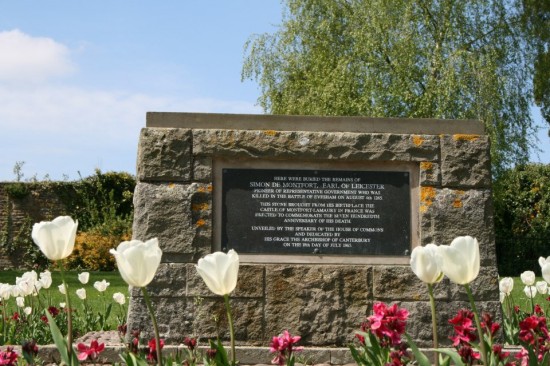“British values” have been in the news recently. I was going to write a blog article listing my own choices for what British values consist of. But, instead, I thought I’d write about a few people that I think have done a lot to shape British values.
None of these people are particularly obscure, although they’re not necessarily the most famous in their field. And those that are better known are picked here for reasons that are not necessarily directly connected with their primary claim to fame. But I think they all deserve to be remembered for their contribution to British values.
I was originally going to do this as a single article listing lots of people. But, having written half of it, I’ve decided instead to split it over several posts and focus on one person (or maybe a couple of people) each time. If nothing else, it will give me something to write about for the next few weeks.
Simon de Montfort wasn’t even British. He was a French nobleman who became embroiled in the Second Barons’ War, taking the side of those who wanted to enforce the provisions of Magna Carta against Henry III. In the course of the war, de Montfort’s troops controlled most of southern England and left him the de facto ruler, having captured and imprisoned the king. As ruler, one of the things he did was to summon a parliament.
Neither parliaments nor democracy were an innovation in 1265. Ancient Greece was the cradle of democracy, and Iceland’s parliament is known by millions of pub quizzers as the oldest still extent. Previous English kings, too, had summoned ad hoc parliaments to offer advice to the monarch. De Montfort’s novel concept was to combine the two. As well as the usual (for the time) bishops, abbots, earls and barons, de Montfort also called for two knights from each shire and two burgesses from each borough. As well as being the first time that an English parliament had included members explicitly intended to represent their localities, de Montfort went a step further and stipulated that the representatives were to be elected, not appointed.
Simon de Montfort didn’t rule England for long. Edward Longshanks (Henry III’s son, and the future Edward I) escaped from captivity and assembled an army which later defeated de Montfort at the Battle of Evesham. The barons lost the war, and Henry III resumed control. But their principles lived on. Edward had been sympathetic to the reformers and briefly considered siding with them against his father. Although family loyalty won out in the end, he retained his interest in reform.
Following his accession to the throne, Edward I instituted what is now referred to as the Model Parliament. As the name suggests, this was very much the template for future parliaments, and current parliamentary democracy is a direct descendant of it. But what was remarkable about it was that the model parliament itself was modelled on Simon de Montfort’s parliament, complete with elected representatives from the boroughs.
England has had an elected representative parliament ever since. It’s a model of government that we have exported to the world. Every democratic nation on the planet uses a form of representative democracy which can be traced back to Edward I and Simon de Montfort. There are few values more British than that.

